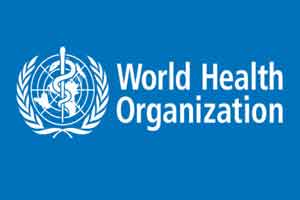- Home
- Editorial
- News
- Practice Guidelines
- Anesthesiology Guidelines
- Cancer Guidelines
- Cardiac Sciences Guidelines
- Critical Care Guidelines
- Dentistry Guidelines
- Dermatology Guidelines
- Diabetes and Endo Guidelines
- Diagnostics Guidelines
- ENT Guidelines
- Featured Practice Guidelines
- Gastroenterology Guidelines
- Geriatrics Guidelines
- Medicine Guidelines
- Nephrology Guidelines
- Neurosciences Guidelines
- Obs and Gynae Guidelines
- Ophthalmology Guidelines
- Orthopaedics Guidelines
- Paediatrics Guidelines
- Psychiatry Guidelines
- Pulmonology Guidelines
- Radiology Guidelines
- Surgery Guidelines
- Urology Guidelines
Global health spending more, but people's out of pocket expense still high: WHO

All over world,Countries' health spending has increased , but out of pocket expense of people still high,reports WHO.The global spending on health is growing faster than the rest of the global economy, accounting for 10% of global gross domestic product (GDP).
A new report on global health expenditure from the World Health Organization (WHO) reveals a swift upward trajectory of global health spending, which is particularly noticeable in low- and middle-income countries where health spending is growing on average 6% annually compared with 4% in high-income countries.
“Increased domestic spending is essential for achieving universal health coverage and the health-related Sustainable Development Goals,” said Dr Tedros Adhanom Ghebreyesus, WHO Director-General. “But health spending is not a cost, it’s an investment in poverty reduction, jobs, productivity, inclusive economic growth, and healthier, safer, fairer societies."
Health spending is made up of government expenditure, out-of-pocket payments (people paying for their own care), and sources such as voluntary health insurance, employer-provided health programmes, and activities by non-governmental organizations.
Governments provide an average of 51% of a country’s health spending, while more than 35% of health spending per country comes from out-of-pocket expenses. One consequence of this is 100 million people pushed into extreme poverty each year.
The report highlights a trend of increasing domestic public funding for health in low- and middle-income countries and declining external funding in middle-income countries. Reliance on out-of-pocket expenses is declining around the world, albeit slowly.
In middle-income countries, government health expenditure per capita has doubled since the year 2000. On average, governments spend US$60 per person on health in lower-middle income countries and close to US$270 per person in upper-middle income countries.
When government spending on health increases, people are less likely to fall into poverty seeking health services. But government spending only reduces inequities in access when allocations are carefully planned to ensure that the entire population can obtain primary health care.
In low- and middle-income countries, new data suggest that more than half of health spending is devoted to primary health care. Yet less than 40% of all spending on primary health care comes from governments.
“All WHO’s 194 Member States recognized the importance of primary health care in their adoption of the Declaration of Astana last October,” said Dr Agnes Soucat. “Now they need to act on that declaration and prioritize spending on quality healthcare in the community.”
The report also examines the role of external funding. As domestic spending increases, the proportion of funding provided by external aid has dropped to less than 1% of global health expenditure. Almost half of these external funds are devoted to three diseases – HIV/AIDS, Tuberculosis (TB) and malaria.
While the report clearly illustrates the transition of middle-income countries to domestic funding of health systems, external aid remains essential to many countries, particularly low-income countries.
The new WHO report points to ways that policymakers, health professionals and citizens alike can continue to strengthen health systems.
“Health is a human right and all countries need to prioritize efficient, cost-effective primary health care as the path to achieving universal health coverage and the Sustainable Development Goals,” concluded Soucat.

Disclaimer: This site is primarily intended for healthcare professionals. Any content/information on this website does not replace the advice of medical and/or health professionals and should not be construed as medical/diagnostic advice/endorsement or prescription. Use of this site is subject to our terms of use, privacy policy, advertisement policy. © 2020 Minerva Medical Treatment Pvt Ltd